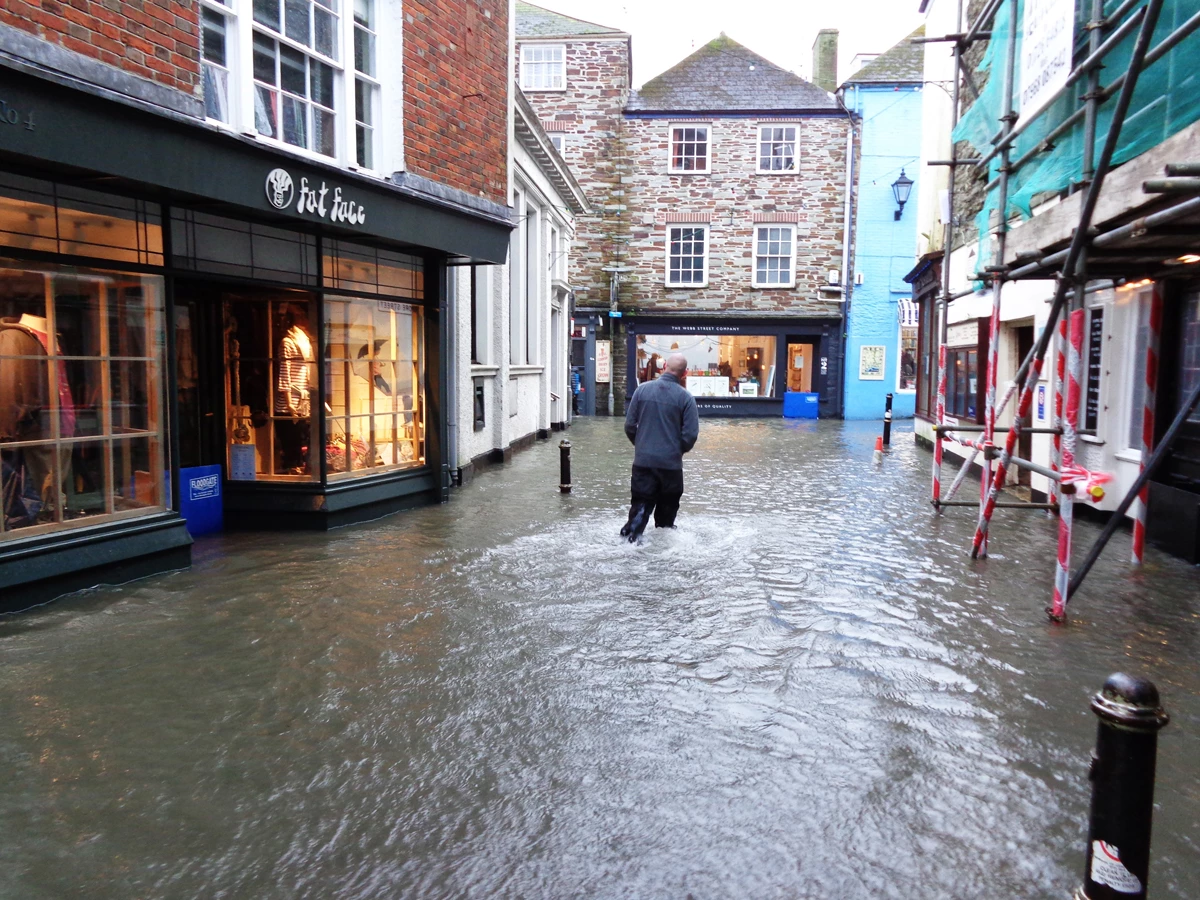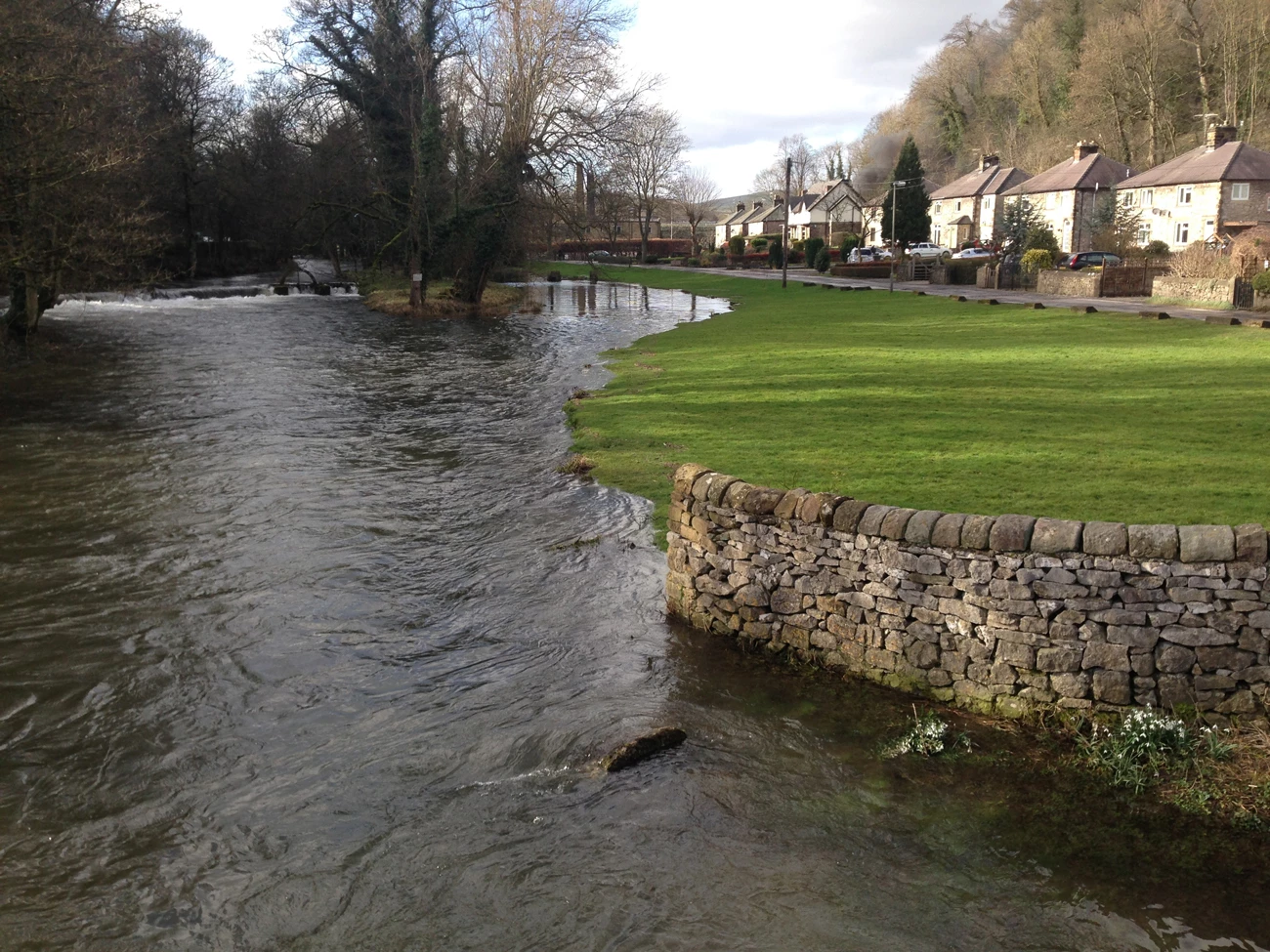13/12/2019 | Category: Commercial Insurance

The effects of flooding can be devastating for a business. According to data from the Royal Institute of Chartered Surveyors, more than 300,000 business premises in the UK are at risk of flooding.
Government data tells us that managing flooding costs around £2.2 billion every year and £800 million per year is spent on flood and coastal defences. Yet, still the annual damage caused by flooding in this country totals around £1.3 billion.
Despite widespread flooding happening at least once a year in the UK, businesses are often unprepared to deal with the devastation it can cause.
Businesses at increased risk of flooding
According to data from the Met Office, heavy rains of more than two inches are becoming more common in the UK.
There is some debate surrounding the causes of that increase (whether it’s down to climate change or not), but with the Met Office issuing hundreds of flood warnings at a time, businesses are at increased risk of flooding.
Business owners are busy people and buying commercial property insurance might not be a priority. The tendency might be to rush into taking out a policy that doesn’t have adequate cover, but that can leave a business exposed to risk.
It is common for SMEs to be underinsured, meaning the amount they can claim is insufficient to cover their costs should something happen. Another point to bear in mind is that SMEs are not protected by the Government’s Flood Re scheme, which ensures flood insurance is available to homeowners at higher risk.
It’s important business owners know what is available to them and have access to the best cover for their business.
Take action: 7 ways to protect your business from flooding
Floods are the most frequent form of natural disaster in the UK, and businesses need to take the necessary steps to minimise damage.
Here are seven steps you can take to protect your business premises from flooding.
1 Find out if you are at risk
The Environment Agency will be able to tell you if your business is in a flood-risk area. You can either contact them directly, or enter your postcode into the postcode finder on their website. This will quickly tell you the level of risk for your business premises.
2 Carry out a flood mitigation survey
If you discover your business is at risk of flooding, you will want to know how ‘at risk’ it is.
The type and level of risk will vary for each business. These assessments look at the potential for damage and the measures that can be taken against the risk.
These recommendations can then be used when getting commercial property insurance to ensure your business has a suitable level of flood risk cover.
3 Sign up to flood warnings
You can sign up for flood warnings from Gov.uk’s website. It’s quick and simple – all you need is the address you’re registering, a phone number and email address.
4 Get a flood plan in place
All businesses have policies in place, from health and safety to cybersecurity – and having documented flood plans should be no different. When plans are clear and written down, it makes them easier to remember, easier to communicate and easier to access in the event of an emergency.
In small businesses, it is generally the responsibility of the owner to write the plan. This document needs to include contacts, protective actions, a map of the business showing fuse boxes, stopcocks and sandbags and a checklist of procedures.
Common actions on the flood plan might include turning off gas and electricity supplies, moving computers and other valuable equipment to a higher level, and contacting local disaster recovery organisations and your commercial insurance company.
5 Get the relevant insurance
It is vital that businesses at risk of flooding have the right commercial property insurance in place.
Buildings and contents insurance will cover the business premises against accidental damage caused by flooding, while business interruption insurance can cover you if the business is unable to operate out of the premises following a flood.
Cover can include loss of income and increased costs of working if the business needs to be relocated.
6 Minimise potential damage
If your company is in an area prone to flooding, there are some practical things you can do to minimise that risk. These include:
· Raise damp proof courses
· Cover ventilation bricks
· Fit drains with non-return valves
· Fit water-resistant skirting boards
· Lay floor tiles rather than carpets
· Raise electrical sockets and wiring to above 1.5 metres
· Make sure internal fittings are made from watertight materials
· Install passive flood defences such as steel flood doors or self-closing flood barriers which require no human intervention to deploy in the event of a flood
7 Give all staff flood training
As part of the wider flood plan, make sure all employees are trained in what to do if a flood risk warning is issued, or in the event of a flood happening.
You want all staff members to know how to minimise the amount of damage and disruption to the business. For example, if flood barriers need to be set up, staff must know where to access the barriers and how to install them.
Make sure the flood plan is part of the employee handbook and available in a shared place on the network. If staff have the right training and information, they will be able to act quickly and efficiently to protect the business.
Running a business is a challenge at the best of times. But with the right commercial property insurance in place, business owners can avoid any headaches if they need to make a claim.
That means giving the insurer accurate information about the risk and disclosing all relevant facts (a legal requirement under the 2016 Insurance Act).
Every business needs the right insurance to protect them in the event of flooding. By seeking professional advice from an insurance broker, cover can be tailored accurately and a business owner won’t find themselves faced with problems if they make a claim.
Make sure you give commercial property cover the consideration it warrants and ensure it is as comprehensive as possible. The specialists at Insurance Choice can help.
Get a quote for commercial property insurance today.
